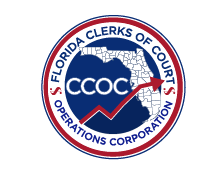Ignoring traffic ticket fines could result in your drivers license being suspended. From 2016 to 2018 over 3.1 million suspensions were issued for failure to pay traffic or criminal fines according to the Florida Clerk of Court Operation Corporation (FL-CCOC). A suspension doesn’t prevent you from getting behind the wheel. License suspension citations often occur as a result of a drivers license check enforced during a subsequent traffic stop. But it could potentially lead to your arrest and back in front of the judge to answer new charges. Suspension or not, people continue to drive.
Court fines are judicial sanctions requiring compliance. Suspension is an enforcement tool that encourages compliance. But violators often cite high fine costs, limited time, and inadequate notice as reasons for missing compliance due dates.
This challenge is not unique to Florida. Across the country 44 states enforce fail to pay license suspensions. According to the Free to Drive Campaign, 11 million people have lost their license for not paying fines. In July of this year the state of Virginia passed legislation repealing all failure to pay citations. This resulted in the removal of over 627,000 license suspensions. States around the country are currently evaluating the use of failure to pay drivers license suspension.
The concern for Clerks in Florida is how to enforce failures to pay without suspension sanctions and how to make up the budget shortfall. In Virginia, the governor authorized $10 million dollars to fund money previously collected from license suspension fees. Florida Senator Jeff Brandes , has worked on driver’s license suspension reform over the past 4 years and recently stated that this change could cost up to $40 million to fix the hole left in clerk of court budgets.

Both violators and clerks are searching for cooperation that provide solutions to fine obligations. For violators time and payment terms need some level of flexibility. For clerks it’s an understanding that fines cannot be ignored and must be resolved. Options exist for each side that will produce better outcomes.
Violators unable to pay in full should enroll in payment plans. Payment plans promote participation in reducing payment debt minimizing monthly financial hardship. Other alternatives include community service in lieu of payments. Most courts in Florida will convert $10 of fines for every hour work performed. Fifty hours of service would reduce payments by $500.
Clerks should continually look at ways to educate violators on the need to pay. The process begins at the time of sentencing at or near the courtroom reviewing payment plan options. Electronic notifications should be considered such as email and text messaging before payments are late to keep violators aware of obligations.
Ultimately this is a matter of creating a payment obligation relationship between the violator and clerks. By actively pursuing alternatives that promote awareness and compliance better results are possible. It requires a commitment from the legislature to fund Clerks as they emphasize encouraging compliance over collecting. With an organizational commitment citizens will appreciate the change, clerks will help solve the compliance challenges, and drivers will avoid suspension.

